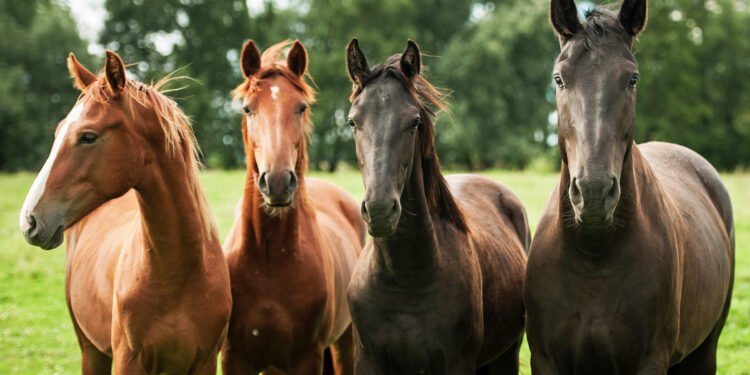Last Updated on May 26, 2024 by Flavia Calina
For horse enthusiasts, purchasing an equine partner is not a transaction but the beginning of a cherished alliance. The emotional bond shared with a horse is irreplaceable; however, the financial stakes involved in their healthcare, accidents, or unexpected fatalities cannot be ignored. Smart horse owners recognize that equine partnerships bear both sentimental and economic value. One prudent approach to protect against potential financial losses is acquiring horse insurance, which provides a critical safety net in times of need.
Why Equine Insurance is a Stable Decision for Horse Owners
The leap into horse ownership is as much about passion as practicality. Like any significant asset, equines warrant protection that goes beyond primary care. Investing in equine insurance offers financial security, ensuring that should unforeseeable events transpire, you have the resources to provide the best possible care without the weight of excessive costs. Moreover, the emotional strain that comes with managing equine health crises can be alleviated through a solid support system, partially provided by a comprehensive insurance policy.
Types of Coverage: Finding the Right Fit for Your Horse
Insurance policies for equines come in a bouquet of varieties, each designed to cater to different aspects of horse care and ownership. From mortality and theft to liability and significant medical expenses, the scope of coverage can be extensive. Mortality insurance caters to the loss of a horse as a result of death or necessary euthanasia, while medical insurance bears the brunt of veterinary expenses due to injury or sickness. Liability insurance is instrumental for owners who house horses in populated areas or provide equestrian services, protecting against incidents where the horse could cause injury or property damage. It’s critical to assess which types of coverage align with the unique risks associated with your horse’s lifestyle, age, and the disciplines they partake in, creating a safety net tailored to your specific circumstances.
Cost Considerations: Budgeting for Equine Insurance
Allocating funds for equine insurance should be a thoughtful part of every horse owner’s budget. The cost of premiums is influenced by a myriad of factors, including, but not limited to, the horse’s value, age, breed, and use. High-performance athletes, for instance, may command higher premiums due to the elevated risks associated with competitive riding. It’s essential to strike a balance between comprehensive coverage and affordability, ensuring that you pay attention to vital policy benefits in an attempt to reduce costs. An in-depth understanding of these determinants and a clear-eyed view of your budgetary limits will guide you when navigating insurance options.
Policy Pricing Factors
- The horse’s breed, age, and medical history, all of which sketch its risk profile.
- The degree of coverage required depends on the horse’s intended use, such as leisure riding, breeding, or competing.
- The type and extent of coverage you seek influence deductible amounts and the overall annual premium.
- Riders should factor policy specifics such as exclusions, policy limits, and additional cover options into their financial planning.
Selecting a Trustworthy Insurer: What to Look for
Selecting the insurer who will support the policy is a decisive factor in gaining peace of mind. Qualities of a trusted insurer encompass more than just competitive pricing; they include experience in the equine insurance sector, a reputation for prompt and fair claims handling, plus commendable customer support. Delve into reviews from fellow equestrians, ask for recommendations from your equine community, and research how the company addresses disputes. An insurer familiar with the nuances of horse care can make all the difference when it comes to understanding and addressing your concerns.
Policy Customization: Ensuring Comprehensive Protection
Your horse is an individual with specific needs that differ from those of any other horse. Therefore, your insurance policy should be equally individualized. Policy customization can range from choosing a deductible that aligns with your financial comfort to selecting optional benefits like colic surgery coverage or loss of use. By tailoring coverage options and limits to your horses and your circumstances, you ensure a policy that provides holistic protection without the financial burden or unwanted gaps in coverage.
The Claims Process: What to Expect When You Need to File
Experience makes clear that uncertainty is a constant companion in horse ownership. Whether dealing with minor injuries or major health crises, knowing how to file a claim efficiently is empowering. Familiarize yourself with your policy’s protocol for filing claims, including the types of documentation and proofs required, such as veterinary reports and purchase receipts. Moreover, understanding the timeline for claim processing and the methods for dispute resolution should they arise ensures you and your horse won’t be left in a lurch when you least expect it.
Navigating the Claims Process
- In case of an incident, initiating contact with your insurer promptly is imperative.
- Compiling all requisite documents, including detailed veterinary reports, invoicing, and proof of ownership.
- An understanding of the claims turnaround time ensures you have a clear expectation of when and how compensation will be executed.
Future-Proofing: The Importance of Re-Evaluating Your Policy
As your and your horse’s needs evolve, so should your insurance. Changes in your horse’s health, financial status, or even riding discipline can all warrant revisiting your coverage terms. Annual policy reviews, or reviews triggered by significant life events, guarantee that your insurance remains pertinent, providing your equine friend with steadfast protection throughout the various stages of their life.
Insurance is an integral component of careful horse care and ownership. For a more comprehensive dive into the aspects of horse insurance, readers might find value in the meticulous guide provided by The Spruce Pets. Furthermore, statistical studies such as those reported by Horse & Hound can provide a practical understanding of the frequency and type of claims experienced within the industry, solidifying the necessity of a thoughtfully chosen equine insurance policy. Read more exciting articles on Today World Info











